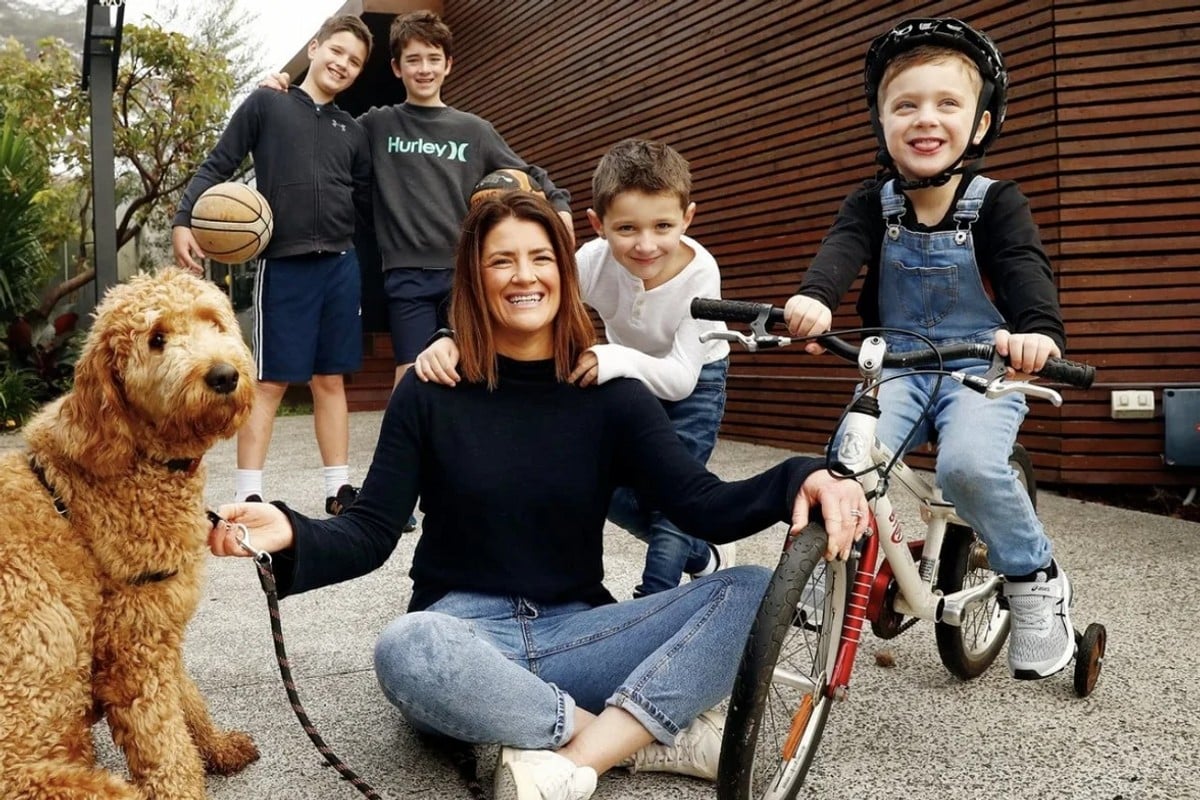
If you want to support independent women's media, become a Mamamia subscriber. Get an all-access pass to everything we make, including exclusive podcasts, articles, videos and our exercise app, MOVE.
One of my four boys found saying goodbye at the school gate really tricky. It was strange because I would hear from his teacher that he settled in immediately and had a fantastic day, but the lead-up to the school gate and the goodbye was always hard.
Once we got into the playground, even though his friends were right there, he would not leave my side, stuck like Velcro to my leg.
I would try to encourage him to move off me.
"There's your mate Raph," I would say. "Oh, he's having the best time playing handball, don't you want to join in?" But my son would remain firmly attached to my leg.
One morning, while thinking about how to encourage my son to explore the playground with more confidence, it suddenly hit me.
Watch: She Built That Podcast. Post continues below.
Every time I pushed him harder to move off me, I was almost telling him it wasn't OK to be nervous.
I realised that one of the best things we could do when someone is struggling to move away from us is to let them know that their emotion is OK.




























































































